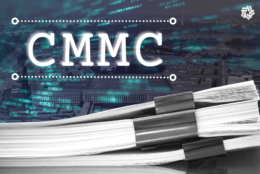Cybersecurity
-
An academic course endorsed by the Defense Department and delivered by accelerator company BMNT aims to help science and engineering students.
July 15, 2024 -
DHS cyber lead Iranga Kahangama also says the proposed cyber incident reporting rule is not "simply a land grab," as some criticize it for being overly broad.
July 12, 2024 -
Many regulations require that companies working with national security information implement aggressive levels of cybersecurity.
July 10, 2024 -
An amendment in the Senate version of 2025 NDAA would "return decision-making power back to DoD components" to purchase cyber products and services.
July 09, 2024 -
Cybersecurity becomes almost a personal matter when you're working in a war zone and information superiority is a must.
July 08, 2024 -
“My big thing in the last year has been how do I build the J-2? I need people, I need authorities, I need capability, I need funding,” said Col. Richard Leach.
July 05, 2024 -
The intelligence community is also pursuing initiatives in cloud computing, data management, zero trust cybersecurity and quantum-resistant encryption.
July 02, 2024 -
Not yet in effect, the Cybersecurity Maturity Model Certification program rule is now at the White House for review.
July 02, 2024 -
How is the State Department strengthening the cybersecurity workforce?
July 02, 2024 -
Where are agencies in their zero trust journey?
July 02, 2024 -
How are the CDC and TSA managing cloud adoption to meet their missions?
July 01, 2024 -
Guidehouse paid $7.6 million and Nan McKay & Associates paid $3.7 million to resovled claims that they violated the False Claims Act.
June 28, 2024 -
What’s next for FedRAMP? What about CISA’s SCuBA? How about secure AI adoption? Where do these efforts interconnect?
June 28, 2024 -
The new emerging technology prioritization framework will help determine which generative AI tools need to be pushed to the front of the line for approval.
June 27, 2024 -
CTMS hasn’t been the immediate shot in the arm some thought it would be, but DHS’s CIO says it’s a key part of the department’s future.
June 27, 2024















